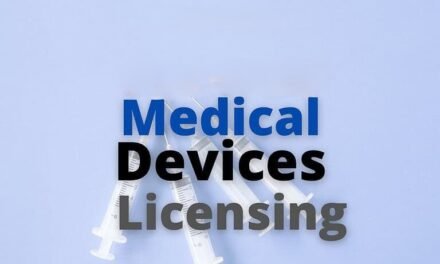
The Role of Clinical Trials in India’s Medical Device Approval Process

Clinical trials play a critical role in India’s medical device approval process, ensuring that devices are safe, effective, and suitable for their intended use. Governed by the Medical Device Rules, 2017, clinical trials are integral to obtaining regulatory approval from the Central Drugs Standard Control Organization (CDSCO).
Why Clinical Trials Are Important:
- Safety Assessment:
- Clinical trials evaluate potential risks associated with a medical device, ensuring patient safety before market approval.
- Efficacy Validation:
- Trials determine whether the device performs as intended, providing the desired clinical benefits.
- Risk-Benefit Analysis:
- Trials help weigh the potential benefits of a device against its risks, enabling informed regulatory decisions.
- Regulatory Compliance:
- Clinical trial data is required to meet the stringent standards set by CDSCO and align with global norms like the U.S. FDA and EU MDR.
Clinical Trial Phases for Medical Devices:
- Pilot Studies (Feasibility Studies):
- Conducted on a small group of participants to evaluate basic safety and performance parameters.
- Helps refine device design and protocol before large-scale trials.
- Pivotal Studies:
- Larger studies designed to confirm the device’s safety and efficacy for the intended use.
- These trials generate the data required for regulatory submission.
Regulatory Framework for Clinical Trials:
Key Documents:
- Form MD-12: Application for conducting clinical trials.
- Investigator’s Brochure (IB): Provides comprehensive details about the device, including its mechanism, risks, and prior study data.
- Ethics Committee Approval: Trials must be approved by an ethics committee to ensure compliance with ethical guidelines.
Key Steps:
- Preclinical Testing:
- Involves bench testing and animal studies to gather preliminary data on device safety.
- Approval from CDSCO:
- Submit Form MD-12, clinical investigation protocol, and preclinical data to CDSCO for trial approval.
- Clinical Trial Registration:
- Register the trial with the Clinical Trials Registry – India (CTRI) for transparency.
- Ethics Committee Review:
- Obtain approval from an independent ethics committee to ensure participant rights and safety.
Clinical Investigation Plan (CIP):
The CIP outlines:
- Study objectives and endpoints.
- Participant eligibility criteria.
- Risk management strategies.
- Statistical analysis methods.
Post-Trial Requirements:
- Data Submission:
- Trial data must be submitted to CDSCO, demonstrating the device’s safety and efficacy.
- Post-Market Surveillance (PMS):
- After approval, manufacturers must monitor device performance in the market and report adverse events.
Key Challenges in Clinical Trials for Medical Devices:
- Complexity of Device Trials:
- Unlike pharmaceuticals, medical devices often require unique protocols and specialized expertise.
- High Costs:
- Conducting large-scale trials can be expensive, particularly for small and medium enterprises.
- Participant Recruitment:
- Recruiting sufficient participants who meet the eligibility criteria can be challenging.
- Regulatory Delays:
- Lengthy approval timelines can hinder timely device launch.
Recent Developments in India’s Clinical Trial Landscape:
- Simplified Procedures for Low-Risk Devices:
- CDSCO has streamlined the approval process for Class A and B devices, reducing the need for extensive clinical trials.
- Global Harmonization:
- India’s participation in the International Medical Device Regulators Forum (IMDRF) aligns clinical trial requirements with global standards.
- Digital Platforms:
- The introduction of online portals for clinical trial applications and monitoring has improved transparency and efficiency.
The Path Forward:
- Increased Infrastructure: Enhance clinical trial sites and recruit trained investigators for device-specific trials.
- Financial Support: Provide incentives or subsidies for small and medium enterprises conducting trials.
- Collaboration with Global Entities: Partner with international organizations to adopt best practices and expedite trials.




























